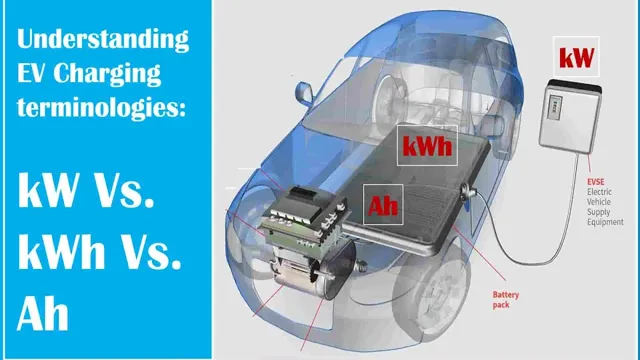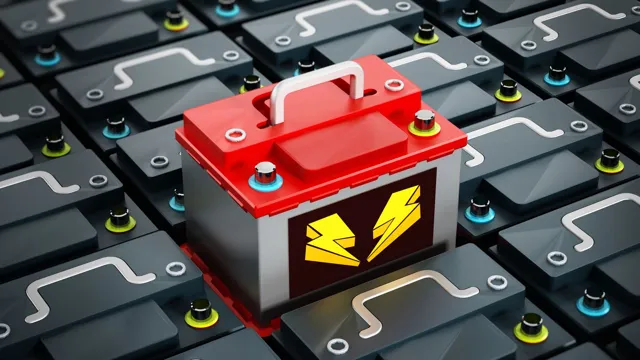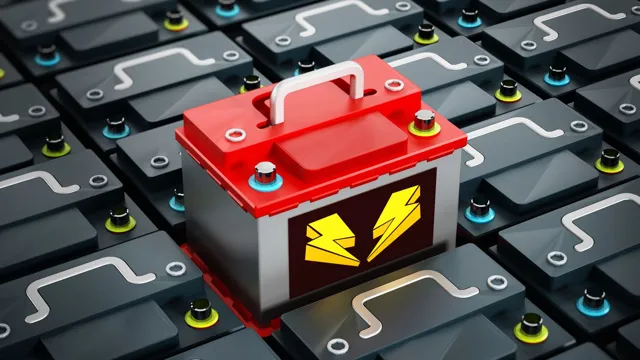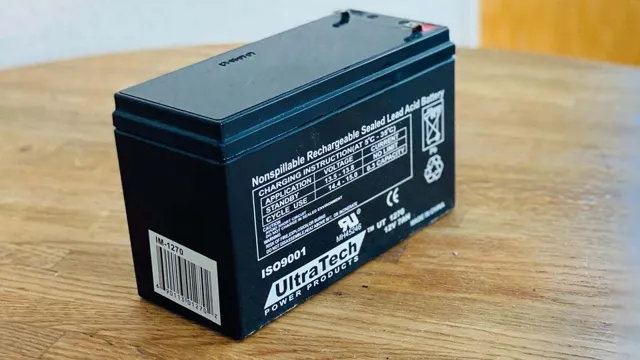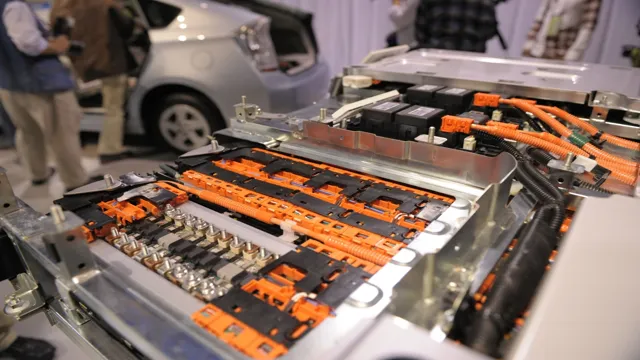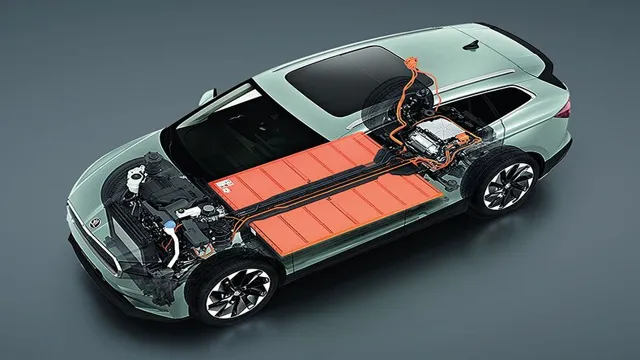Unraveling the Mystery: Understanding Electric Car Battery kWh
Electric vehicles are becoming more and more popular with each passing year, and with good reason. They’re better for the environment, quieter, and often cheaper to run. However, one thing that confuses many people is the battery.
How powerful is it? How long will it last? What does “kWh” even mean? In this blog post, we will be exploring everything you need to know about electric car batteries, including the all-important kWh measurement. You’ll be an expert in no time! So, buckle up and get ready to learn!
What is kWh?
Electric car battery kWh, or kilowatt-hour, is the unit used to measure energy capacity. Essentially, it measures how much energy can be stored in an electric car’s battery. The bigger the battery, the more kWh it can store.
For example, a car with a 60 kWh battery can store less energy than a car with a 100 kWh battery. Understanding kWh is essential when it comes to owning an electric car, as it determines how far you can travel on a single charge. It’s also important to note that kWh can be used to measure electricity consumption, such as how much energy is used to power your home.
So, next time you’re considering purchasing an electric car, be sure to pay close attention to its kWh capacity and make sure it aligns with your driving needs.
Definition of kWh and how it relates to electric cars.
kWh kWh, short for kilowatt-hour, is a unit of energy used to measure the amount of electricity consumed. To put it simply, one kWh is the amount of energy required to power a 1kW appliance for 1 hour. In the case of electric cars, kWh refers to the capacity of the battery pack, which determines how much energy the car can store and use to power its electric motor.
The higher the kWh, the longer the car can travel on a single charge. This is why range is often measured in miles per kWh or watt-hours per mile. Understanding kWh is crucial for electric car owners as it helps to determine the charging time and cost of charging the battery.
It is also essential for comparing the efficiency of different electric vehicles and understanding the energy consumption of household appliances.
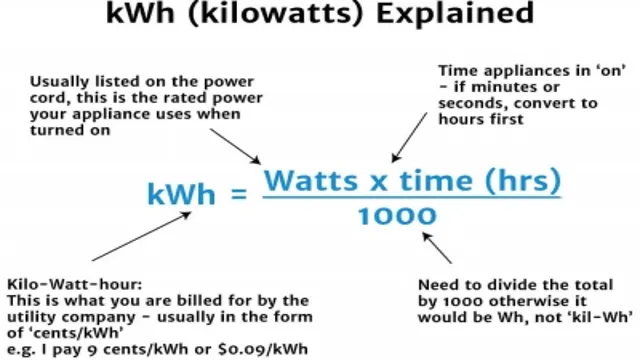
Why is kWh important for electric cars?
When it comes to electric cars, understanding the importance of kWh can make a big difference in deciding which car to purchase. Put simply, kWh stands for kilowatt hour- a unit used to measure the amount of energy stored in an electric car’s battery. The higher the kWh rating, the more energy is stored in the battery and the further the car can travel on a single charge.
This means that having a higher kWh rating can provide drivers with more flexibility and peace of mind when it comes to driving range. For example, a car with a 60 kWh battery might have a range of around 200 miles on a single charge, while a car with a 30 kWh battery might only have a range of 100 miles. It’s also worth noting that higher kWh batteries typically come with a higher price tag, so it’s important to consider your budget when deciding what size battery to go for.
Overall, understanding kWh is an essential part of making an informed decision when it comes to buying an electric car.
Explanation of how kWh affects the performance of electric cars.
When it comes to electric cars, the term “kWh” is quite important. It refers to the amount of energy that can be stored in the car’s battery. The more kWh a battery has, the higher its driving range will be.
This means that if you have an electric car with a larger battery (more kWh), you will be able to cover more miles on a single charge. On the other hand, if your car has a smaller battery (less kWh), you’ll have to recharge more frequently or travel shorter distances. To put it simply, kWh is key because it determines how much power an electric car can produce.
This is why it’s important to determine your driving needs before selecting an electric car. If you’re someone who frequently travels long distances, a car with a high kWh rating may be more appropriate. Meanwhile, if you tend to drive shorter distances, a more affordable car with a smaller battery may be a more logical option.
Overall, it’s clear that kWh plays an integral role in the performance of electric cars. It’s not just about selecting any electric car – it’s about selecting one that is tailored to your driving habits and daily needs. By doing so, you’ll be able to optimize your driving experience, reduce your carbon footprint, and save money on gas.
How much kWh does an electric car need?
When it comes to electric cars and their batteries, one of the most frequently asked questions is how much kWh (kilowatt hour) an electric car needs. The answer to this question is not as straightforward as it may seem, as electric car batteries can come in a range of sizes, with some cars having larger batteries than others. In general, the kWh of an electric car battery refers to the amount of energy that the battery can store and subsequently use to power the vehicle.
The higher the number of kWh in the battery, the further the electric car will be able to travel on a single charge. Electric cars can have batteries ranging anywhere from 15 kWh to over 100 kWh, with larger batteries typically being found in high-end electric cars. It’s worth noting that the amount of kWh a car needs also depends on how often you need to use your car, how far you’ll be driving, and how long you plan on owning your car.
Overall, when considering purchasing an electric car, it’s important to take into account the battery size and its corresponding kWh to make sure it aligns with your specific needs and usage habits.
Data on the average kWh needed for different types of electric cars.
Have you ever wondered how much kWh an electric car needs? The answer depends on the type and model of the vehicle. On average, a compact electric car like the Nissan Leaf or the Chevrolet Bolt needs around 30 kWh to travel 100 miles. Larger electric vehicles like the Tesla Model S, with its bigger battery pack, can travel up to 370 miles on a single charge with over 100 kWh of energy stored.
Electric cars with smaller battery packs can still get you around, but you may need to charge more frequently. It’s important to consider your daily driving habits when choosing an electric vehicle so that you can select a model with enough range to meet your needs. With more charging infrastructure being installed across the country, owning an electric car has never been easier, and it’s a great way to reduce your carbon footprint and save on fuel costs in the long run.
Comparison of kWh usage between electric cars and traditional gasoline cars.
When it comes to comparing the kWh usage of electric cars versus traditional gasoline cars, the difference is quite staggering. Electric vehicles (EVs) typically require around 30 kWh of energy per 100 miles of driving, while gasoline cars use approximately 1 gallon of fuel or 37 kWh of energy per 100 miles.
This means that EVs are significantly more energy-efficient than gasoline cars and can save drivers a considerable amount of money in the long run. However, the amount of kWh required for an EV depends on various factors such as the vehicle’s size, weight, and battery capacity. It’s also worth noting that regenerative braking technology in EVs can help recharge the battery while driving, further increasing their efficiency.
Ultimately, the transition to electric vehicles is not just good for the environment but also a smart financial decision for drivers looking to save on fuel costs in the long term.
Can you upgrade an electric car’s battery kWh?
When it comes to electric cars, the battery pack is a crucial component that directly affects the range and performance of the vehicle. The kWh (kilowatt-hours) rating of the battery pack refers to its energy storage capacity, and it is a common question whether it can be upgraded. The answer is both yes and no.
Yes, it is technically possible to upgrade the battery pack by installing a higher kWh-rated pack. However, it may not always be practical or cost-efficient due to the associated costs. In some cases, the cost of a new battery pack can be as much as the value of the whole car, making it not a viable option for many electric car owners.
Furthermore, some electric car models may not have an option to upgrade the battery pack at all due to the design and compatibility issues. For example, some models may have a different battery pack shape or size for different production years, preventing the use of a higher-rated pack. On the other hand, some electric car manufacturers, such as Tesla, offer battery pack upgrades as a service.
Tesla offers battery pack upgrades for their Model S and Model X vehicles, allowing owners to increase their range and performance at an additional cost. In conclusion, upgrading an electric car’s battery kWh rating is possible but may not always be practical or cost-efficient. It’s essential to research the associated costs and compatibility issues with your specific electric car model before deciding whether to upgrade the battery pack.
Explanation of how and if battery kWh can be upgraded for electric cars.
One of the most frequently asked questions about electric cars is whether or not their battery kWh can be upgraded. The answer is both yes and no. In theory, it is possible to upgrade the battery in an electric car, but it largely depends on the make and model of the vehicle.
Some car manufacturers offer battery upgrades as an option, while others do not. In addition to this, upgrading the battery in an electric car can be a costly process, as it can involve not just the price of the new battery, but also the installation costs and any necessary software updates. Having said that, upgrading the battery kWh capacity of an electric car can have significant benefits, such as improved range and extended battery life.
It also ensures that the vehicle remains competitive and up-to-date with the latest technology advancements. However, it’s important to note that battery upgrades might not always be the optimal choice for everyone. Depending on the age and condition of the vehicle, it may make more sense to invest in a new electric car altogether rather than upgrading the battery.
In conclusion, upgrading the battery kWh capacity of an electric car is certainly possible, but it largely depends on the make and model of the vehicle, as well as an individual’s specific needs and budget. It’s important to carefully consider all factors before making a decision and consult with a professional if needed. Ultimately, when done right, a battery upgrade can lead to a more efficient, reliable, and enjoyable electric car driving experience.
Conclusion
In conclusion, the kWh rating of an electric car battery is the equivalent of its fuel tank size. It determines how much charge the battery can hold, and therefore, how far you can drive before needing to recharge. So, if you want to get the most out of your electric car, make sure to keep an eye on the kWh rating and find the sweet spot between driving distance and charging time.
After all, just like any good road trip, it’s all about balancing efficiency and adventure, one kilowatt hour at a time.”
Summary of the importance of kWh for electric cars and how it affects electric car performance.
Electric car performance is largely affected by the battery’s kWh capacity, as it determines the range and power output of the vehicle. Upgrading an electric car’s battery kWh is possible, but it’s not as simple as switching out a regular car battery. It involves replacing the entire battery pack, which can be costly.
However, the benefits of upgrading to a higher kWh battery pack can greatly improve the performance and range of the electric car. With a higher kWh, the electric car can travel further on a single charge and have a faster charging time. Additionally, a higher kWh battery pack can provide more power to the motor, resulting in faster acceleration and a better driving experience overall.
While upgrading an electric car’s battery pack kWh can be expensive, the long-term benefits in terms of range and performance are well worth considering.
FAQs
What is a kWh when referring to an electric car battery?
A kWh, or kilowatt-hour, is a measure of the amount of energy stored in an electric car battery.
How does the size of a battery’s kWh capacity affect an electric car’s range?
The larger the battery’s kWh capacity, the greater the range of the electric car.
What is the average kWh capacity of an electric car battery?
The average kWh capacity of an electric car battery is around 60-80 kWh.
Does fast charging an electric car battery affect its kWh capacity?
Fast charging an electric car battery can affect its kWh capacity over time, as it can cause increased wear and tear on the battery’s cells.
